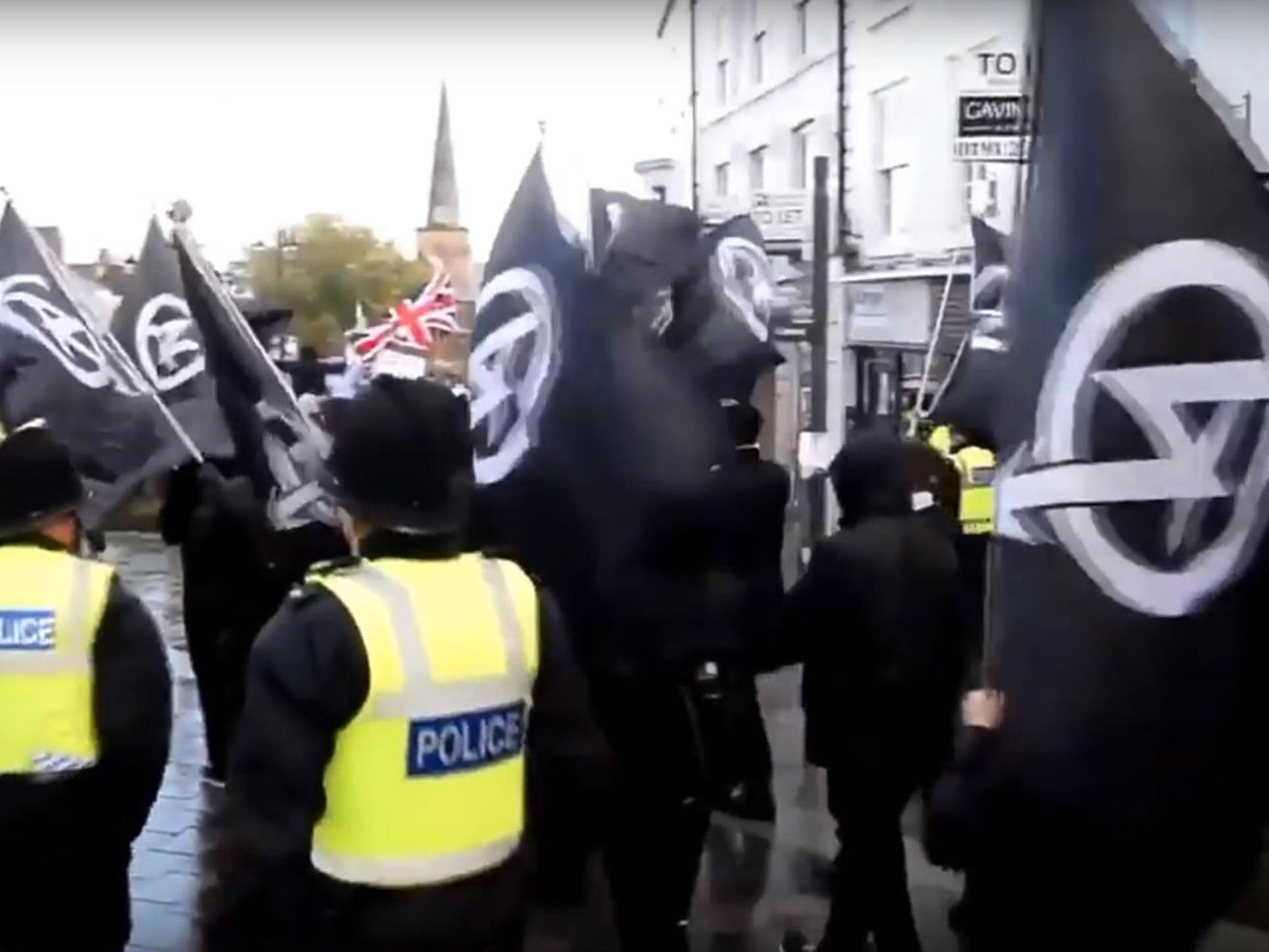Should neo-Nazis be banned or just kept under surveillance?
This debate keeps recurring, with Sinn Fein, Hizb ut-Tahrir and Tommy Robinson – should they be banned or should their ideas be challenged out in the open?

Your support helps us to tell the story
This election is still a dead heat, according to most polls. In a fight with such wafer-thin margins, we need reporters on the ground talking to the people Trump and Harris are courting. Your support allows us to keep sending journalists to the story.
The Independent is trusted by 27 million Americans from across the entire political spectrum every month. Unlike many other quality news outlets, we choose not to lock you out of our reporting and analysis with paywalls. But quality journalism must still be paid for.
Help us keep bring these critical stories to light. Your support makes all the difference.
The Independent has been an uncompromising defender of free speech since its foundation. We believe that the best way to fight bad ideas is with better ideas. We are biased against banning things, and in particular against banning the expression of opinions.
Our prejudice is that organisations advocating views that most people find abhorrent should not be banned. We would rather that their views be held up to public view and challenged. There is, of course, a difference between expressing obnoxious views and inciting, soliciting or organising violence. Which is why we supported the decision in 2016 to ban National Action, the British neo-Nazi group.
It was the first time a right-wing organisation had been banned since the Second World War. Since then, Scottish Dawn and NS131, two other groups set up by former National Action members to avoid the ban, have also been banned. As we report today, police and the Home Office are now discussing whether to ban other factions linked to the hydra.
This is a familiar grey area, one in which there is never a definite right or wrong answer. Two years after The Independent was launched in 1986, the Conservative government banned journalists from broadcasting the voices of members of Sinn Fein, the political wing of the IRA. We protested against that ban, which made it harder to hold spokespeople for republicanism to account for IRA killings, and harder to report the debate within republicanism about whether the time had come for it to pursue its aim of a united Ireland by exclusively peaceful means.
The ban was lifted in 1994 as part of John Major’s attempt to open up dialogue, which led eventually to the Good Friday Agreement four years later.
The Labour government wrestled with the similar problem of whether to ban Hizb ut-Tahrir, an Islamist political movement. Even after the 7/7 bombings, when a ban would have given the appearance of getting tough with the ideologues of jihadism, the Home Office held to a pragmatic line. There was no evidence the organisation advocated violence, and it was deemed better to allow it to operate out in the open where it could be seen. Despite the Conservatives pledging to ban Hizb ut-Tahrir in their 2010 manifesto, that approach continues to this day.
Similar arguments apply to Tommy Robinson, the pseudonym of Stephen Yaxley-Lennon, the former leader of the English Defence League who is now an adviser to Gerard Batten, the Ukip leader, and an independent candidate for the European parliament in North West England.
Mr Robinson was once a hopeful figure, when he disowned his anti-Muslim prejudice and pledged to help fight it in others. Unfortunately that phase did not last long, and he was banned from Facebook and Instagram two months ago. This would seem to be contrary to the principle of free speech, but Facebook has come to the view – as a publisher rather than the neutral provider of an open media space – that his opinions amount to inciting violence.
We happen to share Facebook’s view, and think it is important to recognise the role of new social media in amplifying ideologies that promote violence, but the decision by a commercial operation not to publish someone does not amount to an infringement of free speech.
Whether the decision is to ban or not to ban, what is important is intelligence, in both senses of the word. Counterterrorism forces need to monitor and understand the ideas, people and networks that promote violence regardless of their formal structures. It made sense to ban National Action, but what really matters is keeping an eye on what its supporters are up to.
For that reason, it matters less whether or not the latest neo-Nazi splinter groups are banned than whether the threat from their potential sympathisers is understood and watched.
Join our commenting forum
Join thought-provoking conversations, follow other Independent readers and see their replies
Comments